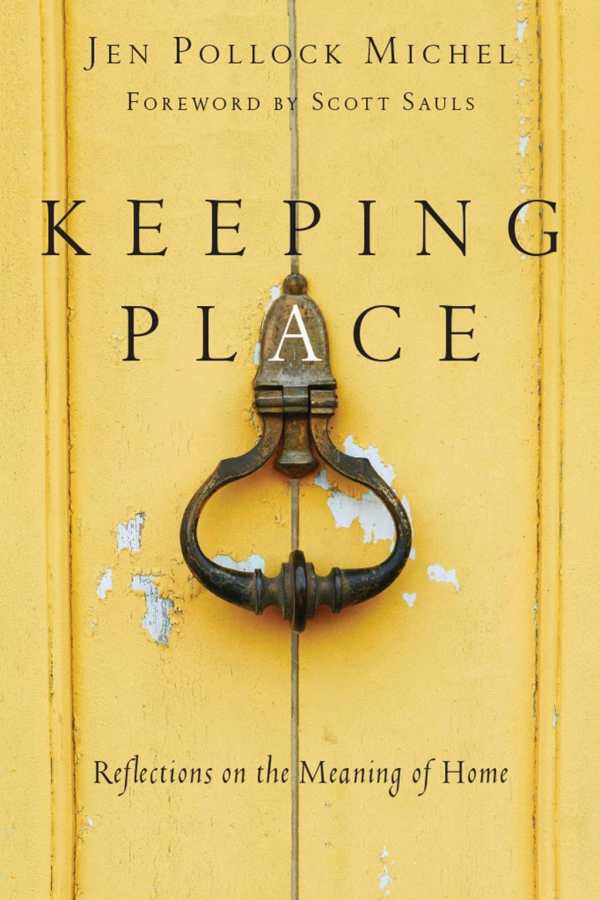Keeping Place
Reflections on the Meaning of Home
Keeping Place offers alternative sites within a world that often feels divided—places where home really matters.
Jen Pollock Michel’s Keeping Place: Reflections on the Meaning of Home is a welcome antidote to a distressing news cycle.
The author details her struggles with finding a home of her own with a familiar tone. She describes moving often, the joys of new motherhood, and the ache of seeking roots. She argues this is not just a human need, but one that is God-inspired.
In the context of her work, home is understood as something that all people aspire to but that can be hard to find in today’s world. She writes, “Home is the dry place we are all searching for.” Keeping Place offers insight into what that search and struggle can look like, especially for those who find themselves in foreign territory.
The book’s biblical arguments are well grounded and thought out, tackling some of the Bible’s most arguably sexist passages—those that are used to confine women to their homes and to keep them silent. Pollock Michel argues convincingly that such verses need to be understood more inclusively.
Keeping Place weaves together a wide range of materials and supports, drawing from history, cultural studies, literature, and the Bible. It discusses crossing borders, immigration, and mobility, and considers each topic through the author’s personal vignettes and published reports of other individuals’ stories.
All this theory wraps up in the book’s second half, which includes a dash of do-it-yourself to help turn its big ideas into reality. While theory often sounds better than its iterations in lived reality, Keeping Place is cognizant of offering practices and ideas for truly building a better home. It considers the importance of neighbors, church, love, and marriage, among other aspects.
There is a place for this book in the heart of a world so divided along national and international lines. Keeping Place stands ready to offer alternative sites within a world that often feels divided—places where home really matters, with the idea that everyone is welcome to find their own place.
Reviewed by
Jeremiah Rood
Disclosure: This article is not an endorsement, but a review. The publisher of this book provided free copies of the book to have their book reviewed by a professional reviewer. No fee was paid by the publisher for this review. Foreword Reviews only recommends books that we love. Foreword Magazine, Inc. is disclosing this in accordance with the Federal Trade Commission’s 16 CFR, Part 255.

